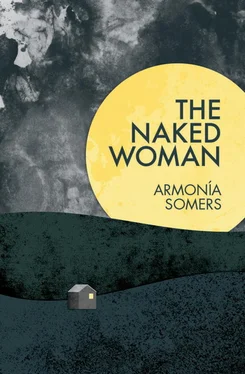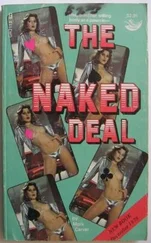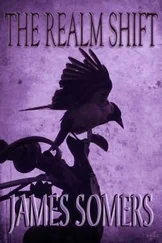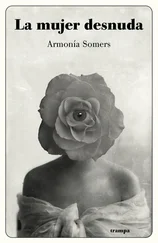VIOLETTE LEDUC(1907-1972) has been referred to as “France’s greatest unknown writer.” Admired by Jean Genet, Nathalie Sarraute, and Albert Camus, Leduc was championed by Simone de Beauvoir when she published her scandalous autobiography La Batarde (1964). Like Thérèse and Isabelle , many of her audacious novels are largely inspired by her life. She is the subject of Martin Provost’s biopic, Violette (2013).
SOPHIE LEWISis a London-born writer, editor and translator from French and Portuguese. Recent translations include The Earth Turned Upside Down by Jules Verne (Hesperus) and The Man Who Walked Through Walls by Marcel Aymé (Pushkin). She is a Senior Editor at publisher And Other Stories.
CHASING THE KING OF HEARTS
Hanna Krall
Translated by Philip Boehm
Afterword by Mariusz Szczygieł
In this canonical work of Polish reportage, Hanna Krall crafts a terse and unexpected human lesson out of a Holocaust novel and occupation-era love story. Based on a true story, the raw interplay of history and fictionalization spans the Warsaw Ghetto, the war-torn countryside, and the nightmare of Auschwitz, and won the English PEN Award and the Found in Translation Award.
HANNA KRALLis the award-winning author of the critically acclaimed memoir The Sky Isn’t Visible from Here (Algonquin/Harper Perennial) and the founder of the now defunct but highly regarded literary journal Small Spiral Notebook .
PHILIP BOEHM, born 1958, is an American playwright, theatre director and literary translator. Born in Texas, he was educated at Wesleyan University, Washington University in St. Louis, and the State Academy of Theater in Warsaw, Poland. Boehm is the founder of the Upstream Theater in St. Louis, which has become known for its productions of foreign plays. Boehm has translated more than twenty literary works from German and Polish. He has won numerous prizes for his translations, including the Schlegel-Tieck Prize and the Oxford-Weidenfeld Translation Prize, as well as various awards from the American Translators Association, the National Endowment for the Arts, PEN America, the Austrian Ministry of Culture, and the Texas Institute of Letters.
The Feminist Pressis a nonprofit educational organization founded to amplify feminist voices. FP publishes classic and new writing from around the world, creates cutting-edge programs, and elevates silenced and marginalized voices in order to support personal transformation and social justice for all people.
See our complete list of books at
feministpress.org

“I am so grateful that a new generation will be able to read this surreal, nightmarish book about women’s struggle for autonomy—and how that struggle is (always, inevitably) met with violence.”
—CARMEN MARIA MACHADO, author of
Her Body and Other Parties
“The extraordinary power of The Naked Woman lies in the mysterious sensation of a metaphor whose meaning is being suspended. Like all literary greats, Armonía Somers offers no answers, she just amplifies the questions.”
—ANDRÉS BARBA, author of
Such Small Hands
“A fiery, imaginative meditation on the reach of embodied consciousness, The Naked Woman is a timely translation of a Latin American hidden jewel. Wild and brilliant, Somers speaks to us in the here and now of our troubled present.”
—CRISTINA RIVERA GARZA, author of
The Iliac Crest
“Armonía Somers is an extraordinary writer whose erotic fairy-tale world is akin to that of Angela Carter. Thanks to Kit Maude’s perceptive rendering, the English-speaking reader can now discover one of the most original, and unfairly neglected, Latin American authors of the past century.”
—ALBERTO MANGUEL, author of
A History of Reading
“Too strange and scandalous for her time, Somers is a feminist legend.”
—LINA MERUANE, author of
Seeing Red
“This short but savage novel is essential reading. Hallucinatory, surreal, and beautifully brutal. Like a dream-vision that gets under your skin.”
—JULIANNE PACHICO, author of
The Lucky Ones
Published in 2018 by the Feminist Press
at the City University of New York
The Graduate Center
365 Fifth Avenue, Suite 5406
New York, NY 10016
feministpress.org
First Feminist Press edition 2018
Copyright © 2009 by El cuenco de plata
Translation copyright © 2018 by Kit Maude
Afterword copyright © 2018 by Elena Chavez Goycochea
All rights reserved.

This book was made possible thanks to a grant from New York State Council on the Arts with the support of Governor Andrew M. Cuomo and the New York State Legislature.
This book is supported in part by an award from the National Endowment for the Arts.
No part of this book may be reproduced, used, or stored in any information retrieval system or transmitted in any form or by any means, electronic, mechanical, photocopying, recording, or otherwise, without prior written permission from the Feminist Press at the City University of New York, except in the case of brief quotations embodied in critical articles and reviews.
First printing November 2018
Cover and text design by Suki Boynton
Library of Congress Cataloging-in-Publication Data
Names: Somers, Armonía, author. | Maude, Kit, translator.
Title: The naked woman / Armonía Somers; translated from the Spanish by Kit Maude.
Other titles: Mujer desnuda. English
Description: First Feminist Press edition. | New York, NY: Feminist Press at the City University of New York, 2018.
Identifiers: LCCN 2018018021 (print) | LCCN 2018021240 (ebook) | ISBN 9781936932443 (ebook)
Classification: LCC PQ8519.S673 (ebook) | LCC PQ8519.S673 M8513 2018 (print) | DDC 863/.64--dc23
LC record available at https://lccn.loc.gov/2018018021
Reyes Moreira 1959.
Somers 1950. The magazine is Clima: Cuadernos de arte .
I draw on the two publications that give accounts of Somers’s trajectory as a writer: Cosse 1990 and Dalmagro 2009.
Showalter 1985.
Picon Garfield 1987, 37.
Risso 1990, 254 (translation my own). “Yo he dicho que a lo mejor no era solamente que a mi [ sic ] me gustara el nombre de Armonía Somers por que [ sic ] lo prefiriera, pues me dejaba un poco a cubierto del juicio que pudieran tener sobre mí como una persona que ejercía una carrera normativa, y escribiendo tales cosas después. No solamente por eso, si no [ sic ] que a lo mejor era una protesta…”
Dalmagro 2009, 95.
Rama 1972.
María Rosa Olivera-Williams (2012) explains how the fifties was a crucial moment for women writers, as they started to negotiate what a “feminine” subjectivity and “feminine writer” was going to be, as most of them were married to male writers.
Читать дальше













